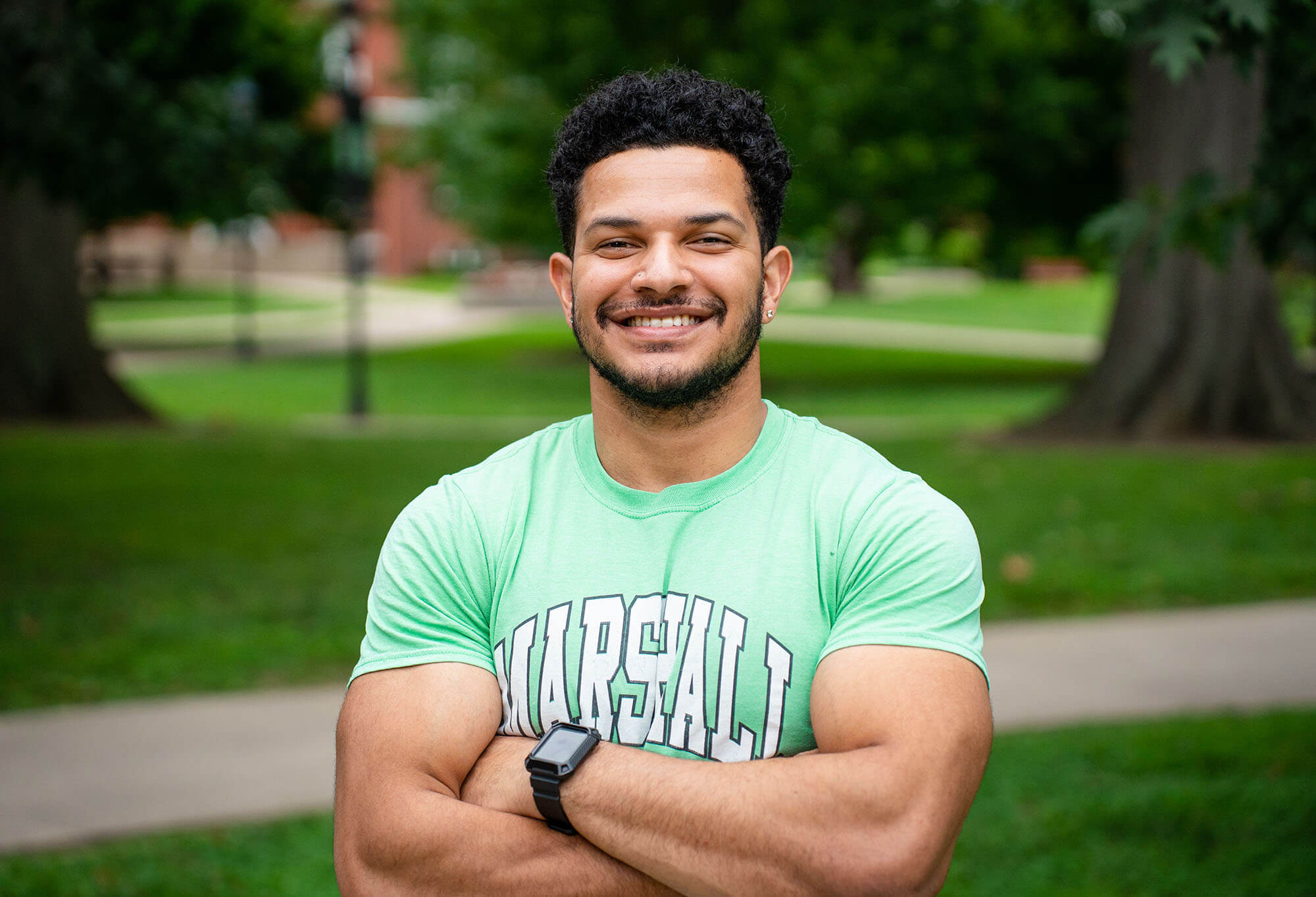Athletic trainers (ATs) are healthcare professionals who collaborate with physicians to provide preventive services, emergency care, clinical diagnosis, therapeutic intervention and rehabilitation of injuries and medical conditions. Athletic trainers are an integral part of healthcare in many clinical settings. The certified athletic trainer has the medical and physiological skills necessary to provide initial assessment and treatment of injury and the foresight to reduce the risk of their occurrence.
Marshall University in Huntington, West Virginia, offers a professional degree program that enables students to earn both a bachelor’s degree in Athletic Training and a master’s degree in AT through MU’s 3 + 2 plan. Students who already have a bachelor’s degree can just pursue the Master of Science in Athletic Training degree program.
The Professional Master of Science in Athletic Training Program (PMSATP) is fully accredited by the Commission on Accreditation of Athletic Training Education (CAATE).
Marshall offers the only 3+2 combined Bachelor and Master of Science in Athletic Training program in the state of West Virginia. The standalone athletic trainer master’s program is also a perfect match for those who have earned a bachelor’s degree from another institution and who are seeking a master’s degree in Athletic Training.
Marshall offers a rigorous academic program in Athletic Training that blends classroom and laboratory instruction with clinical rotations where students complete required clinical education experiences with board-certified athletic trainers, physicians, physical therapists and other allied healthcare professionals.

- Find out which of our academic programs is right for you.
- Meet some of our current students and hear about their favorite Marshall moments.
- Receive invitations to special events for future students.
- Get help with the application and enrollment process.
The Marshall University Athletic Training Program, offering a combined bachelor’s and master’s in five years, prepares students to sit for the national Board of Certification (BOC) exam for athletic trainers. This means Marshall students are eligible to take the BOC exam a year earlier in their education than students in competing programs at other schools. This reduces tuition costs, making Marshall one of the most affordable Athletic Training programs in the country, even for out-of-state students.
Marshall’s PMSAT Early Assurance Program (EAP) allows high school seniors (in-state or out-of-state) to apply for conditional acceptance into the master’s in Athletic Training program. Successful applicants will have a guaranteed seat in the Athletic Training program, pending their completion of all undergraduate requirements and program prerequisites from Marshall University. These students do not have to apply to the Athletic Training program in their third academic year, as long as they meet all PMSAT program requirements.
Athletic Training students gain important experience right on campus at the Marshall Sports Medicine Institute. A collaboration between Marshall Health, Marshall Athletics and Cabell Huntington Hospital, the Marshall Sports Medicine Institute is a premier sports medicine facility with the region’s only academic sports medicine team. The orthopaedic surgeons, primary care physicians, physical therapists and other health professionals in the Institute treat patients of all ages and provide high-quality care for all types of sport-related injuries and illnesses.
According to the U.S. Bureau of Labor Statistics, employment of athletic trainers is projected to grow 23 percent through 2030, much faster than the average for all occupations. Demand for athletic trainers is expected to increase as people become more aware of the effects of sports-related injuries, and as the middle-aged and older population remains active. Their continued activity will likely lead to an increase in athletic-related injuries, such as sprains. Athletic trainers will be needed to provide sophisticated treatments in injury prevention and detection.
According to the BLS, many employers and insurers rely on athletic trainers to help contain costs associated with worker injuries, especially for those who risk injury on the job. For example, athletic trainers may help to rehabilitate injured military personnel. These trainers also create programs aimed at reducing injury rates. Depending on the state, some insurance companies recognize athletic trainers as healthcare providers and reimburse the cost of an athletic trainer’s services.
- Sports Medicine Clinics
- Athletic Teams
- Law Enforcement & Military
- Performing Arts
- Physician Offices
- Secondary Schools


